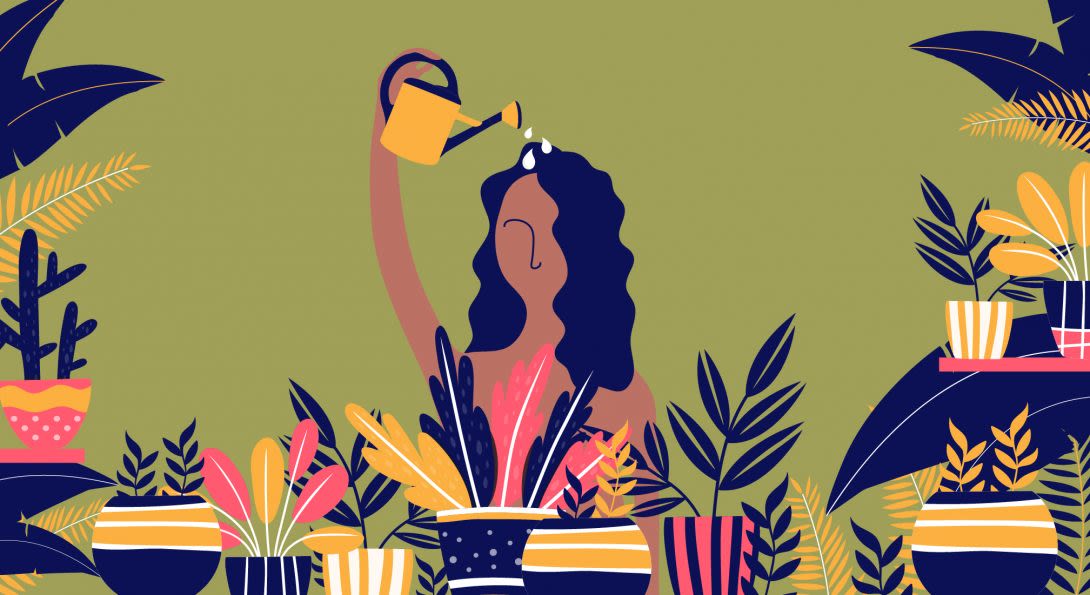
KE Voices: Janine Francois on building a more equitable society through collaboration and creativity

- Written byAnnika Loebig
- Published date 15 June 2022

Janine Francois first started their career at UAL in 2016 as an Associate Lecturer in Cultural and Historical Studies at London College of Fashion, and has since been involved in various roles across our Colleges. This includes working as a Course Leader for BA Culture, Criticism and Curation at Central Saint Martins, becoming one of UAL's Staff Governors and setting up the first-ever Hip-Hop Cultures module at the University.
For over a decade, a central part of their practice has been dedicated to involving young people and marginalised communities in East London in community arts projects. One example is Threads, a fashion project launched in collaboration with arts and culture institutions in London, which brought together young women from Hackney to work on issues surrounding self-esteem and self-identity through creative practices.
We talked to Janine about the ways in which KE has featured in their practice and how they tackle race and climate justice and intersectionality within communities through collaborative projects.
Hi Janine! Can you tell us a little bit about how Knowledge Exchange has been present in your career so far?
It wasn't until I joined the Knowledge Exchange Academic Career Pathway at UAL that I realised KE had been an integral part of my practice for around 10 years. From my perspective working in a university, for me KE is about how we use our power to drive meaningful work forward with community groups and members. In all the collaborations I've been involved in or leading on, it's all about making sure we're sharing knowledge equitably, being transparent and naming the invisible power dynamics that exist in society.
Since KE has been an intuitive part of your work, how would you describe Knowledge Exchange? What does it mean to you as an academic and a practitioner?
Knowledge Exchange is a process. I don't always think there has to be a particular outcome for every project, which is what makes these collaborations to be so open, responsive and adaptable to different challenges and how they present themselves. KE is really about a reflective process that allows us to build new ways of thinking, try new ways of doing and challenge what we know as well.
What do you think attracted you to be involved in KE initiatives as part of your work at UAL?
I've never been an academic who was only interested in producing journal articles – and this is no disrespect to academics who do! For me, it's about equity: I would like people to have access to the things I do because I believe knowledge should be made available to everybody. I do believe in that democracy of education, and Knowledge Exchange offers me the ability to put that into practice.
I'm also interested in different forms of knowledge production and knowledge making. I like making videos, I like writing blogs, I like the variety of the ways in which we as human beings produce knowledge. So often, I have found a research pathway doesn't give me that diversity of approach, whereas following a knowledge exchange pathway has enabled me to say, ultimately, as a curator, and cultural producer, I'm interested in producing culture in a variety of ways.

Are you working on any exciting KE projects you'd like to tell us about?
I'm working on a collaborative, cross-college project between Camberwell, Chelsea and Wimbledon Colleges of Art and CSM Archives and Special Collections, where we're looking at performance and practice in context to decolonisation and how that relates to curatorial practice and visual making. We're working with 3 cultural partners — 198 Contemporary Arts and Learning in Brixton, Autograph in Shoreditch and Bluecoat in Liverpool — to collaborate with a prolific performance artist from South Africa to think about how her practice falls into each of these areas.
The whole premise of the work is to look at water and the impact of water across migration and empire building, but also spirituality and ecology. Water is a very important part of the natural relationships that we have with our climate and natural world, and how this water, which could seem like a neutral thing, is far from neutral. It builds into my own research and interest around climate justice and intersectionality, to look at how supposedly neutral commodities that we all engage with and have access to have equally become highly politicised in a number of ways.
Any other projects or collaborations in the horizon?
I've recently been awarded a writing residency taking place in Senegal over the course of one month. I’ll be working on an archival, research project to document post-colonial art movements, with a particular focus on international festivals in Dakar, which occurred around 1966 and invited prominent black and brown artists to have conversations around the post-colonial condition and a global, black identity.
The research will go on to inform a short course I'm developing for Art on the Underground looking at Pan-Africanism and Afro-Futurism.
Visit Janine's website to find out more about their work and projects
Explore other Knowledge Exchange initiatives happening at UAL
Let's collaborate! Get in touch with us: business@arts.ac.uk
KE Voices is a series of interviews where UAL academics talk about their involvement in Knowledge Exchange (KE) activities, reflecting on how creative thinking and practices can be applied to tackle real-world challenges in collaboration with businesses, charities, local communities and other education institutions.